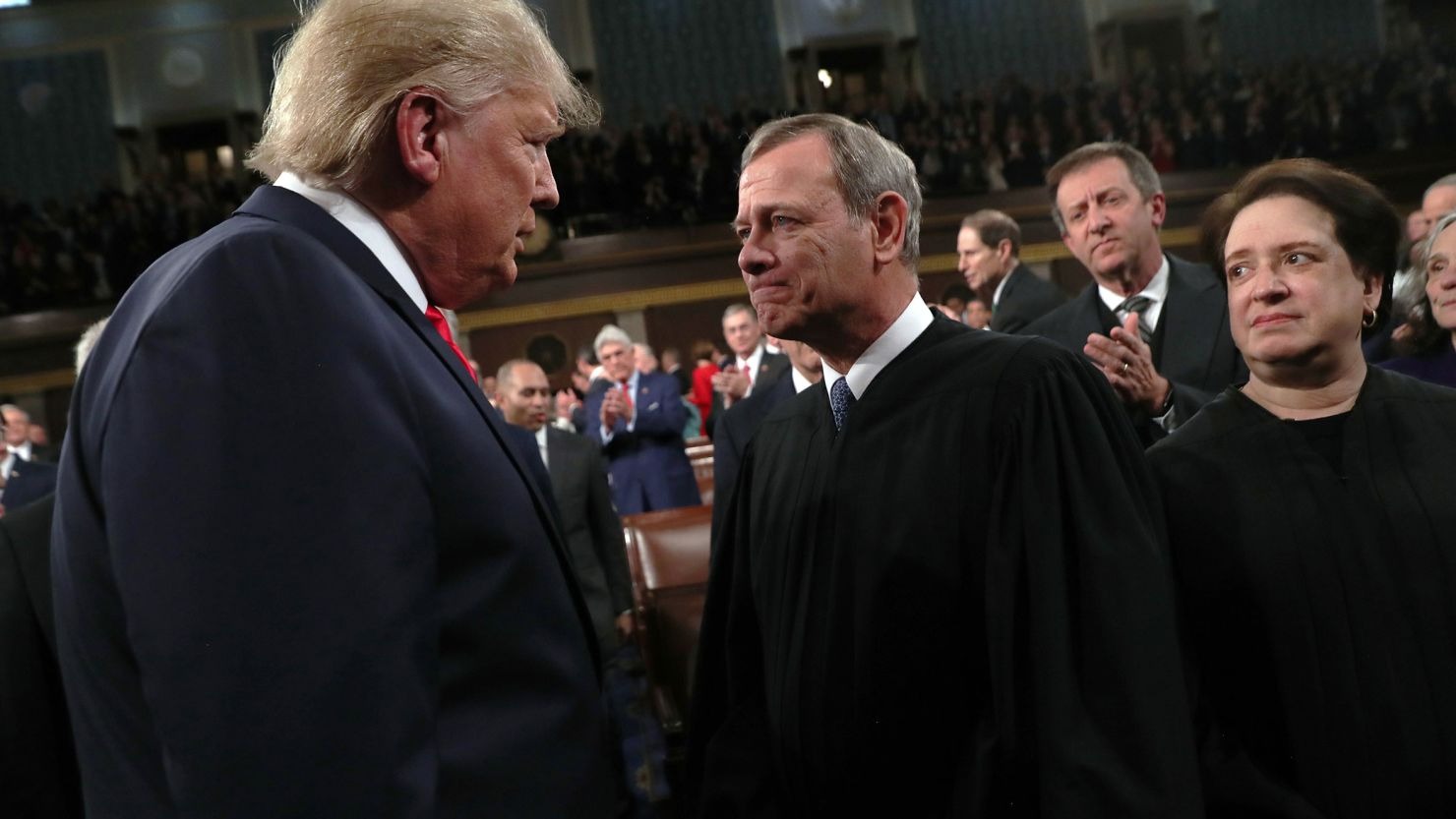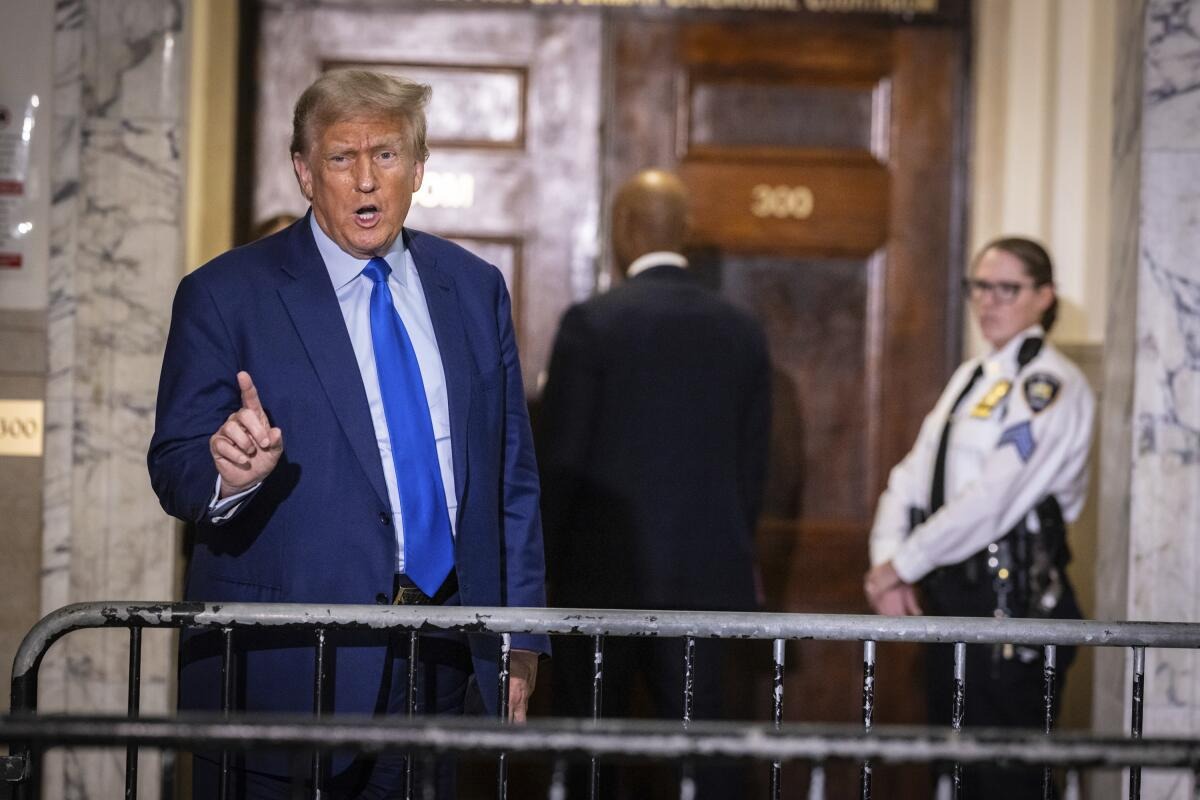Former President Donald Trump has appeared in a federal courthouse in Florida alongside his attorneys for a hearing regarding his efforts to dismiss criminal charges related to classified documents found at his Mar-a-Lago property.
Trump’s lawyers have filed motions to dismiss the charges, arguing that they are unconstitutional and that the Presidential Records Act protects him. However, US District Judge Aileen Cannon, appointed by Trump himself, has deemed these arguments premature.

Trump at Florida Court (Credits: Law & Crime)
Prosecutors countered that Trump never designated the documents as personal and that the Presidential Records Act still applies to classified information found at Mar-a-Lago.
Furthermore, Trump’s attorneys claimed that the Espionage Act, under which he is charged, is too vague and that the term “national defense information” is overly broad.
However, prosecutors argued that Trump’s prior status as a classifying authority does not exempt him from retaining classified documents post-presidency.
The indictment alleges that Trump illegally possessed classified documents and obstructed government efforts to retrieve them following a grand jury subpoena. Trump’s aide Walt Nauta and Mar-a-Lago property manager Carlos de Oliveira were also indicted and have moved to dismiss the charges.

Trump at Florida Court (Credits: Salon.com)
In an interview with Newsmax, Trump claimed he obtained the documents legally and accused Special Counsel Jack Smith of targeting him for political reasons under President Joe Biden’s direction.
The proposed trial dates are set for July and August. Trump’s legal team also invoked presidential immunity as a defense, a claim that prosecutors dismissed as unprecedented and baseless.
FBI agents seized over 300 classified documents from Mar-a-Lago in August 2022 after federal authorities and the National Archives attempted to retrieve them.























